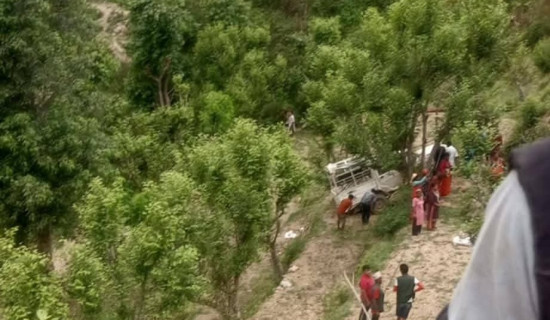- Sunday, 1 June 2025
Teachers’ Accountability In Student Success
If a student fails a class, we usually think that it is because they didn’t try hard enough. For generations, education has been framed as a student’s responsibility: study hard, pay attention, and you will achieve great results. But that is only half of the story. Teachers play a much bigger role in a student's failure than we care to admit.
The reality is, both students and teachers have responsibilities, but the blame is often unfairly placed on students without questioning the effectiveness of those who are supposed to be educating them. Instead of assuming that the students who are struggling are simply lazy, we need to take a closer look at the role of teachers and the education system itself. There’s a common saying: a great teacher can change a student’s life. But what about a bad teacher? Imagine a scenario where a student struggles with a certain topic and approaches the teacher for help, only to be met with a shrug and remarks like “You don’t even understand this simple stuff,” “I don’t have time to teach a student like you,” or simply “Just do it yourself.” In such instances, the student’s grades can plummet.
Impact
Teachers who are ineffective in terms of mentoring don’t just make subjects boring, however, they create environments where students stop trying. Studies show that students who feel unsupported or uninspired by their teachers are far more likely to stop studying altogether, and they also don’t feel that their teachers care about their success. And when students don’t feel like their teachers are invested in them, chances are they also wouldn’t be invested in school or learning.
Beyond academics, the author's school experience was deeply scarring. The teachers who were meant to motivate and support rather commented on physical attributes and mocked their voice. Looking back now, the stuttering, stammering, body features, acne, all just natural parts of puberty, should never have been a source of shame. It not only shattered their confidence but also impacted their academic performance, leading the same teachers to label them as "dull" and "reckless." Ironically, these same teachers delivered powerful motivational speeches every morning during assembly. Yet, their words left an imprint, giving rise to anxiety that still remains.
The humiliation is not limited to school; it extends to the university level as well. Remarks about someone's religion, tradition, or sexual orientation are still common examples we continue to encounter. Students are often discouraged from speaking out about their rights, and if they do, they are forced to suppress their voices for fear that their grades could be compromised. The research is confined to areas suggested by the college, leaving students unable to let their creativity flourish and explore other avenues.
Concerning pedagogy, there’s the issue of outdated or ineffective teaching methods. Many teachers still rely on rote memorization and rigid lectures. They assume that all students learn the same way. They believe it’s perfectly acceptable for students to be taught using the same methods they once experienced. Students learn best when they are active participants, not passive listeners. If a teacher refuses to adapt their methods to the needs of current students, there is a high chance that the student will fall behind others.
Determining who is to blame is not as simple as labeling someone as a "bad teacher" or a "bad student”. The real issue is a broken education system that fails both. Teachers are often underpaid, overworked, and given unrealistic expectations, leading to burnout. When teachers are exhausted and unsupported, their passion for teaching fades, and students suffer. Meanwhile, students are forced into a one-size-fits-all model that doesn’t account for different learning styles, interests, or challenges. Schools often emphasize standardized tests, reducing education to memorization rather than understanding.
Way forward
The first step is better training for the teachers and accountability. Teachers need ongoing professional development to learn modern, engaging and better teaching methods. Schools/ educational institutes also need to have stronger evaluation systems to identify and remove consistently ineffective teachers. At the same time, students need to take responsibility for their own learning. Education isn’t something that can be handed to them - it requires effort, curiosity, and discipline. Schools need to inspire this and encourage more real-world applications, and critical thinking rather than just memorization or exam-oriented learnings.
Parents and communities also need to be involved. Education isn’t just the responsibility of teachers and students; it’s a collective effort. When parents support their children’s education at home and communities advocate for better school funding, everyone benefits.
The debate over bad teachers versus bad students is ultimately a distraction from the real issue: an education system that isn’t built for success. While there are certainly teachers who fail their students and students who refuse to try, the real failure lies in an outdated and ineffective system. Instead of assigning blame, we should be asking how to create an environment where both students and teachers can thrive. What if, instead of focusing on failures, we focused on solutions? What if we demanded better training for teachers, more engaging classrooms, and a system that values real learning over test scores? The future of education depends on our willingness to change and we need to be ready to push for this.
(Sharma is a lecturer and alumnus of Harvard Kennedy School Executive Education. Tandukar is a psychologist at FHEAL, a counselling hub for mindful healing.)







-square-thumb.jpg)









